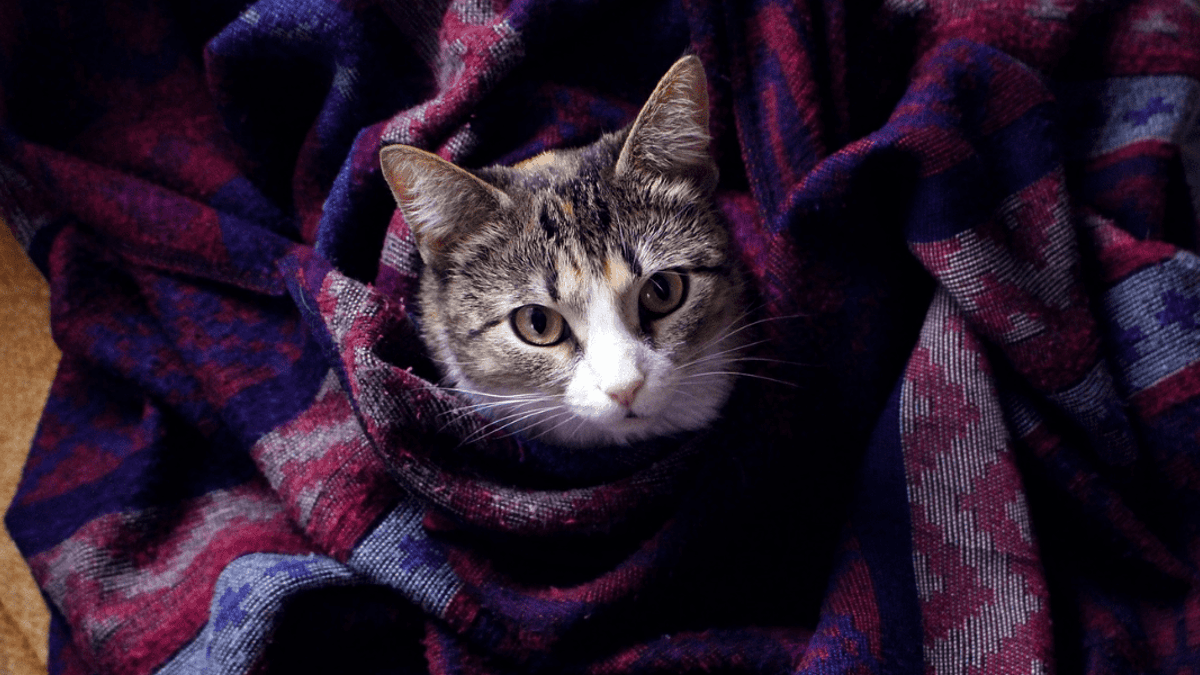Autumn has just begun, but rain, wind and sudden changes in temperature are putting our cat’s immune system to the test more than ever. Felines are very sensitive to respiratory diseases, some of which can be fatal to them.
Hearing an unusual sound coming from our pet can therefore be impressive, but a little cough does not necessarily have to be a source of great concern.
It could be a simple inflammation: let’s see then how to recognize it and what to do in case of cat tracheitis.
Cough in cats
Coughing is a reflex that the cat’s body uses mainly as a defense against an external insult.
Bacteria, virusor exposure to a strong cold these are all possible causes of coughing in cats.
Other reasons can be:
- the presence of mucus and structural changes in the respiratory system,
- the presence of irritants in the air,
- inflammations.
And speaking of inflammation, let’s see what cat tracheitis looks like.
What is cat tracheitis?
Cat tracheitis is a ‘inflammation of the tracheathe long, sturdy tube that connects the throat to the bronchi and then to the lungs.
The characteristic symptom of cat tracheitis is a dry, hard cough, which can sometimes prevent Micio from meowing or purring, and Fido from barking normally.
The cough does not produce catarrh or runny nose typical of colds, but a cough that does not go away further irritates the cat’s mucous membranes and can make it worse.
Symptoms of cat tracheitis
At this stage it is of fundamental importance check the health conditions of our cat: if in addition to the dry cough he does not have fever and seems to be fine, it is possible to remedy the tracheitis with a simple routine care, which we will see later, which does not necessarily involve antibiotic treatment.
If you notice instead other symptoms come:
It is necessary to promptly submit the cat to a veterinary consultation, as there is certainly a complication that must be urgently investigated, both in adults, but also and above all in young kittens.
Infectious tracheitis
The infectious tracheitis they are the most frequent cause of tracheitis and laryngitis in cats, so it is good to ascertain as soon as possible the nature of the inflammation or infection.
One of the most frequent is undoubtedly cat rhinotracheitis caused by HerpesVirus. The disease has more severe symptoms, but with the right treatment here too the prognosis is almost always favorable.
The other virus frequently involved in respiratory diseases is the feline calicivirus.
What causes cat tracheitis?
In addition to viral, bacterial infections and the effect of seasonal changes that can weaken the immune system of your cat, cat tracheitis can be due to foreign bodies stuck along the respiratory tract, which stimulate cough receptors to try to eliminate the disorder.
Not to be confused with the tracheal collapse as both can lead to vomiting, coughing and breathing difficulties. The collapse is due to a weakening of the tracheal rings, which sometimes forces the cat to breathe with the head straight.
Tracheal tumors may be a rarer cause, but still possible especially in the elderly cat. They could come to obstruct the respiratory channel causing breathing difficulties to the animal.
What cure for cat tracheitis?
The trachea is a poorly vascularized organ, so the method of administration can make a difference in effective treatment. When the clinical condition of the feline patient permits, it is an excellent idea to adopt minimally invasive therapies which can act locally and therefore more directly.
In case of cat tracheitis, a perfect solution is theaerosolwhich allows you to moisturize and relieve the mucous membranes, combining the possibility of using antibiotics with treatment.
The only problem here is how the cat will respond to the imposition of a creepy mask from which steam escapes!
Antibiotics and corticosteroids
Antibiotics are not always necessary to treat cat tracheitis, but they are very important in some types of infections and complications, such as cat tracheo-bronchitis. The most suitable are in the form of syrup, also for pediatric use.
There is no indication on the use of corticosteroidswhich we remember to be suppressors of the immune system and therefore to be used with caution.
Both drugs should be prescribed by the vet following a diagnosis of cat tracheitis.
Natural remedies
There are also natural remedies for cat rhinotracheitis based on herbal remedies that stimulate T lymphocytes and therefore help the immune system to assist in a defensive response.
Some useful homeopathic preparations are based on Solgar dry extract, black currant, Perilla oil and Aloe Vera. Make sure Micio is not allergic to it!
How long does cat tracheitis last?
If action is taken promptly, cat tracheitis can resolve itself within 4-5 days. Sometimes more severe inflammation can take up to a few weeks to heal completely. The important thing is to scrupulously observe the treatments!
To help your 4-legged friend overcome tracheitis, don’t forget to always provide him with fresh water and above all a warm place to curl up, with a not too dry air, where he can rest and get back on his feet!

